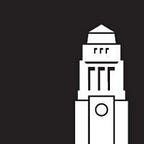Fair trade partnerships
Anne Tallontire graduated from the University of Leeds twice, first with BA Economics, Politics and North American Studies in 1991 and then with an MA in Development Studies in 1993, then known as Anne Palmer. She came back to the University as a member of staff in the School of Earth and Environment in 2007, and is now Pro-Dean for Student Education for the Faculty of Environment and Professor of Sustainability and Business.
I have been involved with fair trade since my time as a Masters student when I joined the Leeds Oxfam Campaigns Group and then the Leeds Development Education Centre. At that time universities weren’t that interested in fair trade and there was very little theory and empirical evidence about how fair trade worked. It was a topic ripe for a PhD and I was lucky enough to get funding to study for a doctorate, not at Leeds, but not so far away at the University of Bradford.
My PhD was on the trading partnerships and the co-operative values at the heart of the fair trade model, with a focus on Cafédirect and its links with small farmer groups in Tanzania. The two themes of partnership and co-operatives have influenced my work on fair trade, and wider approaches to sustainability ever since. I’m interested in both Fairtrade (one word) the standard and certification system and fair trade (two words) as a movement.
When most people in the UK think of fair trade they tend to think about coffee or conjure up images of campaigners dressed as bananas. Coffee and bananas with the Fairtrade logo and the Fairtrade price are important parts of fair trade, but they are not the whole story.
The fair trade movement is linked to trade justice campaigns, and also environmental and social justice. It’s not just a consumer movement. Fair trade is about the voice of workers and farmers, and in recent years the institutions governing fair trade have been transformed so that the farmer and artisan member networks are more involved in their strategic direction.
I was thrilled to be invited to the Fairtrade East Africa convention in Arusha in 2017 and to witness the significant changes since my first visit to Tanzania back in 1996 as a naïve PhD student.
I see myself as a “critical friend” of fair trade, as I share many of the values of fair trade but also seek to encourage the movement to extend and enhance its impacts. I’ve researched the Fairtrade standard and system and also other sustainability standards and supply chain codes of practice. I seek to share learning between the different systems and also on how farmer organisations can support the needs of their members. A related project I currently lead brings together farmer organisations and academics in Ghanaian and Tanzanian universities to examine farmer perspectives on the food system, to identify solutions from their perspective.
I see myself as a “critical friend” of fair trade, as I share many of the values of fair trade but also seek to encourage the movement to extend and enhance its impacts.
I’ve developed a partnership with Fairtrade International to explore how academics can work more effectively with the impact and development arms of the standards. Our partnership began with a PhD project I was supervising on the new Fairtrade Climate Standard and evolved into a one-year project linked to Fairtrade International’s strategic ambition to become a “learning organization”. In this project we investigated varying perspectives on learning and the role of research and evaluation within the organisation.
We also examined how fair trade practitioners viewed researchers and vice versa. Some academics saw fair trade as closed and unresponsive. In contrast, practitioners felt that research conclusions were expressed ‘sharply’ in a way that did not necessarily reflect the nuance in the underlying findings on how things could be improved. As Arisbe Mendoza, Director Global Impact at Fairtrade International, points out, there are “often misconceptions….about how exactly Fairtrade works”. We were keen to create a framework for a mutually supportive dialogue “to enhance collaboration on common themes of interest and to make research more useful.”
One of the more unexpected but inspiring outcomes of this project with Fairtrade International was the development of a collaborative board game for training researchers on ethical and constructive research that involves members of the fair trade movement, such as farmer organisations. We tested this out with PhD students and practitioners at the Fair Trade International Symposium, held in 2018 at the University of Portsmouth.
The Fair Trade International Symposium — a regular meeting of fair trade practitioners and academics that combines conventional academic panels and papers with workshops and campaigning activities — was held online in 2020. It included sessions on resilience of fair trade producers in the face of the Covid-19 pandemic and its impacts on workers. We’re planning for the next Fair Trade International Symposium to take place in person, with some sessions also online, at the University of Leeds in 2023.
In the meantime, the University of Leeds supports fair trade, and is currently working to renew its accreditation as a Fairtrade university. This is closely linked to our broader commitment to the Sustainable Development Goals and our aspirations to embed sustainability in our curriculum. That’s my next project — with a fellowship from the Leeds Institute for Teaching Excellence.
We’re proud of our alumni who make fair trade part of their lives. If you studied at Leeds, please tell us how your career or daily life involves fair trade.
